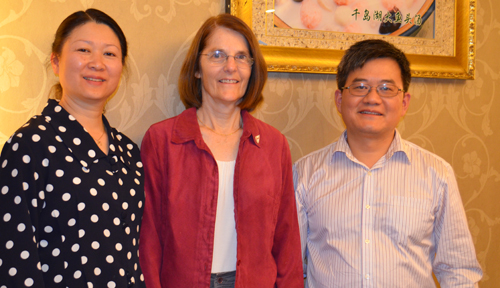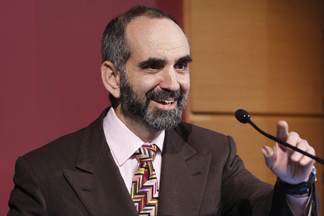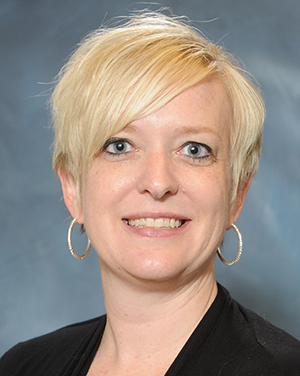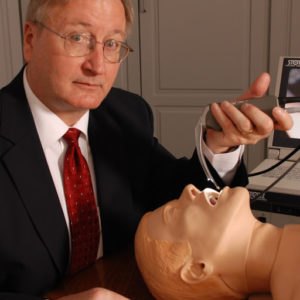by Ross Boettcher, Omaha World-Herald
The plan to dramatically shift the U.S. patent system is prompting mixed reactions from Midlands companies and universities preparing for the changes.
After President Barack Obama signs into law the America Invents Act — the first major patent system overhaul in nearly 60 years — the country’s system will flip from a first-to-invent to a first-to-file system, bringing the U.S. in line with most other nations around the world.
For those who aren’t scientists, intellectual property attorneys or inventors, here’s what the legislation passed by Congress on Thursday means:
Under first-to-invent, entrepreneurs and inventors had a one-year grace period to determine whether their inventions were worth filing patents on. During that time, they could meet with investors or corporate partners and get a better understanding of how valuable their invention might be. If the idea leaked to another inventor or company and it filed a patent first, the initial inventor would have an opportunity to prove that he was the original inventor by keeping logs that prove when the idea was born.
Under the America Invents Act, the patent goes to the first inventor or company to file for an idea or product even if not the first to conceive it.
The new system is aimed at relieving a backlog of patent filings, curbing costly patent litigation and stimulating innovation.
Officials at some Midlands businesses that are heavily tied to patented technology, ideas and products said they’re leery that the new law could favor large corporations and change the way small companies and inventors innovate and assess whether their creations are worth patenting.
“The read that we have is that the first-to-file is going to force companies to file a lot quicker than you normally would. And maybe more often,” said John Gustafson, president and chief executive of Prairie Ventures, a private Omaha-based holding firm with operating companies in publishing, telemedicine, medical technology, business intelligence, staffing and social networking.
“We’re going through and reviewing our (intellectual property) portfolio and evaluating what filings we may want to accelerate instead of waiting until the end of the one-year period,” Gustafson said.
Ryan Grace, a patent attorney who represents Omaha-based ConAgra Foods Inc., said large companies are positioned to take advantage of the first-to-file system because they have more money to spend on filing more patents more often and larger legal teams to help handle that volume increase.
But some small firms and individual inventors, Grace said, will thrive in a first-to-file system because they weren’t properly documenting the development of their inventions under the first-to-invent system, making it impossible to prove that they were the first.
“To them, it was a first-to-file system before,” Grace said.
Other business officials agree that the changes overall improve the system.
Nebraska’s largest patent-holder, with 80 patents secured from 2006 to 2010, Lincoln’s J.A. Woollam Co., takes a big-picture perspective and says the United States is simply falling in line with the rest of the world.
“My personal belief is that it will change the way we file (patents) for sure and what we disclose and don’t disclose,” said Greg Pribil, an engineer at J.A. Woollam, which develops spectroscopic ellipsometer technology for testing materials with light.
“But as far as the grand scheme of things, I don’t think we’re too concerned. Considering that it’s (first-to-file) everywhere else, we already have to deal with that.”
Connie Ryan, the president of Streck Labs, which produces clinical laboratory products and received 39 patents from 2006 to 2010, said Streck has long supported the first-to-file system because it will streamline the patenting process and cut down on expensive litigation.
“We’ve believed in it for a long time,” Ryan said. “All the rest of the world is first-to-file. Only the U.S. is first-to-invent.”
Streck Labs, Ryan said, has spent millions of dollars on litigation involving patent infringement. In 2002 and again in the past year, Streck went to federal court to protect its patents. One case was settled by a California company for a reported $39 million plus royalties. In the second case, a jury decided in Streck’s favor.
Pioneer Hi-bred, the international seed company headquartered in Des Moines, also thinks the legislation is an improvement over the existing law.
“While it is not perfect, we believe it better aligns the U.S. with international patent systems,” a company spokeswoman said in a statement. “Ultimately, improvements like this will help encourage innovation and job growth.”
Some other large, patent-holding Midlands firms have been largely silent on the issue. A spokeswoman declined to comment for Atlanta-based payment processing giant First Data, which has significant operations in Omaha. A spokesman at West Corp., the Omaha-based provider of voice- and technology-based business outsourcing services, also declined to comment.
Many of the nation’s large companies — including Apple, Microsoft, IBM, Google, General Electric and Johnson & Johnson — supported passage of the America Invents Act.
The U.S. Chamber of Commerce, the United Steelworkers and the Association of American Universities also favor the change.
Much of the debate in the six years it took to pass the patent revisions centered on issues related to money.
Because of inventors needing to file more patents frequently under the first-to-file policy, Nita Lovejoy, associate director of the Iowa State University research foundation, expects more of the university’s budget to be allocated toward patent filing. Typically, Iowa State spends between $800,000 and $900,000 on patents. When the bill becomes law in 18 months, Lovejoy expects that number to exceed $1 million.
Lovejoy said the updated system could cause some problems for universities to find corporate sponsors to back their inventions because it’s critical that information about the invention or idea not leak into the wrong hands. “There’s going to be more questions about value of what we have.”
But for the most part, Lovejoy said, the results will be positive for ISU.
“We are fortunate that we’re self-supporting and have some funds to be able to meet these challenges, but we don’t want to frivolously start filing on everything,” Lovejoy said. “I’m sure we’ll be doing some analysis of how we’re reviewing inventions as they come in.”
Michael Dixon, president and CEO of UNeMed Corp., which helps bring inventions from the University of Nebraska system to market, said the passing of the reform will be a boon for the U.S. Patent and Trademark Office as long as the money gained by patent fees are kept within the patent system. The money, he said, is expected to hire more patent office employees, update software programs and increase the number of satellite offices across the country.
“I think the biggest reason that most universities are in support of this is the fee diversion,” Dixon said. “The patent and trademark offices have been used as a piggy bank for years, funding other programs. By now allowing them to keep the fees they charge it will help clear out the backlog of patents in the system. That’s the biggest benefit to the reform, for us.”
Sen. Chuck Grassley, R-Iowa, was a longtime supporter of patent reform, primarily because he sees it eliminating patents that allow companies to find loopholes in the tax system or hold exclusive rights to use loopholes.
“More and more legal tax strategies are unavailable or more expensive for more and more taxpayers,” Grassley said in a statement after the bill’s passage. “We have to protect the right of taxpayers to have equal access to legal tax strategies.”
The Senate passed a final version of the bill on Thursday with rare bipartisan support. Nebraska Sens. Ben Nelson, a Democrat, and Mike Johanns, a Republican, and Iowa Sen. Tom Harkin, a Democrat, joined Grassley in voting for final passage. The bill had passed the House in June.
Obama signaled his support most recently in his Thursday night address about job creation, calling the bill “the kind of action we need.”
“You passed reform,” he told Congress, “that will speed up the outdated patent process so that entrepreneurs can turn a new idea into a new business as quickly as possibly.”
Contact the writer:
402-444-1414, ross.boettcher@owh.com
twitter.com/rossboettcher










